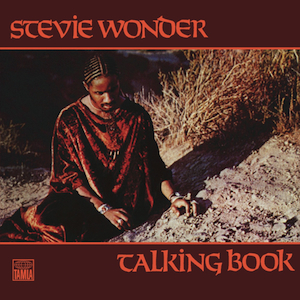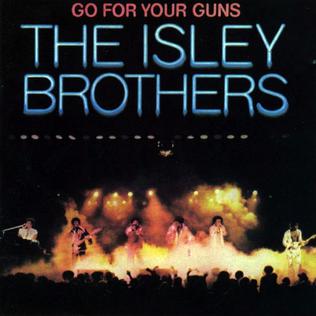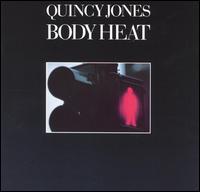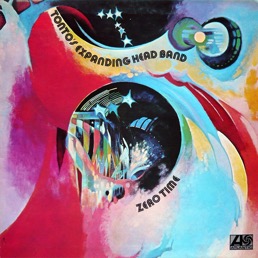Related Research Articles

Talking Book is the fifteenth studio album by American singer, songwriter and musician Stevie Wonder, released on October 28, 1972, on the Tamla label for Motown Records. This album and Music of My Mind are widely noted as being the signal recordings of Wonder's "classic period". The sound of the album is sharply defined by Wonder's keyboard work, especially with the synthesizers he incorporated. His use of the Hohner clavinet model C on "Superstition" is widely regarded as one of the definitive tracks featuring the instrument.

The Captain and Me is the third studio album by American rock band The Doobie Brothers. The album was released on March 2, 1973, by Warner Bros. Records. It features some of their most popular hits including "Long Train Runnin'", "China Grove" and "Without You". The album is certified 2× Platinum by the RIAA.

Diamonds & Rust is a 1975 album by American singer-songwriter Joan Baez. Baez on this album covered songs written or played by Bob Dylan, Stevie Wonder, The Allman Brothers, Jackson Browne and John Prine. Diamonds & Rust, however, also contains a number of her own compositions, including the title track, a distinctive song written about Bob Dylan, which has been covered by various other artists.

Music of My Mind is the fourteenth studio album by American soul musician Stevie Wonder. It was released on March 3, 1972, by Tamla Records, and was Wonder's first to be recorded under his new contract with Motown, which allowed him full artistic control. For the album, Wonder recruited electronic music pioneers Malcolm Cecil and Robert Margouleff as co-producers, employing their custom TONTO synthesizer on several tracks. It was a modest commercial success, but critics found the record representative of Wonder's artistic growth, and is generally considered by contemporary critics to be the first album of his classic period.

Good Old Boys is the fourth studio album by Randy Newman, released in 10 September 1974 on Reprise Records, catalogue number 2193. It was Newman's first album to obtain major commercial success, peaking at number 36 on the Billboard 200. The premiere live performance of the album took place on October 5, 1974, at the Symphony Hall in Atlanta, Georgia, with guest Ry Cooder and Newman conducting the Atlanta Symphony Orchestra.

Tonto's Expanding Head Band was a British-American electronic music duo consisting of Malcolm Cecil and Robert Margouleff. Despite releasing only two albums in the early 1970s, the duo were influential because of their session and production work for other musicians and extensive commercial advertising work.

3 + 3 is the eleventh album released by The Isley Brothers for the Epic label under their T-Neck imprint on August 7, 1973. In 2020, the album was ranked at 464 on Rolling Stone's 500 Greatest Albums of All Time list.

It's My Pleasure is the tenth studio album by Billy Preston, released in June 1975 on A&M Records. The album shows the modernisation of Preston's music, placing a heavier emphasis on synthesizers. It was also his first collaboration with the singer Syreeta Wright who sings on one track. The album is notable for featuring harmonica by Stevie Wonder on two tracks. George Harrison also appears, playing guitar on one track. Also "Song of Joy" would later be covered by Billy's A&M label mates Captain & Tennille for their album of the same name.
A headband is a topless headgear.

The Heat Is On is the thirteenth studio album by American soul and funk group The Isley Brothers, released June 7, 1975 on T-Neck Records and Epic Records. Written and produced entirely by the group, the album was recorded in 1975 at Kendum Recorders in Burbank, California. The group implemented many acoustic and electric instruments during its recording, including guitar, piano, and synthesizer. Primarily a funk and soul outing, The Heat Is On features musical elements of rock music, and it is divided between uptempo funk songs and subdued smooth soul-ballads.

Go for Your Guns is the fifteenth album by The Isley Brothers. Released on April 16, 1977 on their T-Neck label, it was also the band's fifth album to be distributed by their deal with Epic. It is generally regarded by fans, particularly fans of the funk genre, as their best album overall.

Pioneers Who Got Scalped: The Anthology is a compilation album by the American new wave band Devo, released in 2000 by Rhino Records. 17 of the 50 tracks were previously unreleased on CD, including single B-sides, outtakes, remixes, soundtrack songs and spoken word material. The band recorded the long-time concert favorite "The Words Get Stuck in My Throat" in the studio for the first time, specifically for inclusion on this compilation.

Malcolm Cecil is a British jazz bassist and Grammy Award-winning record producer.

Perfect Angel is the second studio album by American singer Minnie Riperton, released in June 1974 by Epic Records. The album contains the biggest hit of Riperton's career, "Lovin' You", which topped the U.S. Pop Singles chart for one week in early April 1975.

Body Heat is an album by Quincy Jones.
Robert "Bob" Margouleff is an American record producer, recording engineer, electronic music pioneer, audio expert, and film producer.

Motivation Radio is the third studio album by British art rock musician Steve Hillage. Whilst touring in the United States in promotion of his previous album L (1976), Hillage grew disillusioned with the progressive rock tag attached to him by the media and fans, and disliked their attitude towards funk music, which Hillage was a big fan of. Hillage wanted to create a funk-influenced album as he was predominately listening to artists such as Funkadelic and Earth, Wind & Fire. Originally written as The Red Album in early 1977, it was retitled Motivation Radio prior to recording.

Syreeta is the debut studio album by American R&B and soul singer and songwriter Syreeta Wright, released on June 20, 1972 on MoWest, a subsidiary of Motown Records.

Zero Time is the debut album by British-American electronic music duo Tonto's Expanding Head Band, released on 15 June 1971 by Embryo Records. The album is a showcase for TONTO, a multitimbral, polyphonic synthesiser build by the two members of the band, Malcolm Cecil and Robert Margouleff, as a developed version of the Moog III synth in 1969. The duo began producing their own music together on the synth with the intention to push the machine's abilities, and their own abilities as musicians, to the limit. Recording their compositions in New York, they approached TONTO with no pre-conceived notions and intended to make music intrinsic to the synthesiser.

After the Storm is the second album by jazz guitarist Norman Brown, released in 1994 on Motown Records. The album peaked at No. 2 on the Billboard Jazz Albums chart and No. 21 on the Billboard Top Soul Albums chart. After the Storm was also certified Gold in the US by the RIAA.
References
- 1 2 Gulla, Bob (2008). Icons of R&B and Soul: An Encyclopedia of the Artists Who Revolutionized Rhythm, Volume 2. Westport: Greenwood. pp. 316–317. ISBN 978-0313340468 . Retrieved 27 November 2017.
- 1 2 Collins, Nick; d'Escrivan, Julio (9 November 2017). The Cambridge Companion to Electronic Music (2nd ed.). Cambridge: Cambridge University Press. ISBN 978-1107590021 . Retrieved 27 November 2017.
- ↑ "Tonto: It's About Time". AllMusic. Retrieved 8 June 2020.
| | This 1970s album-related article is a stub. You can help Wikipedia by expanding it. |